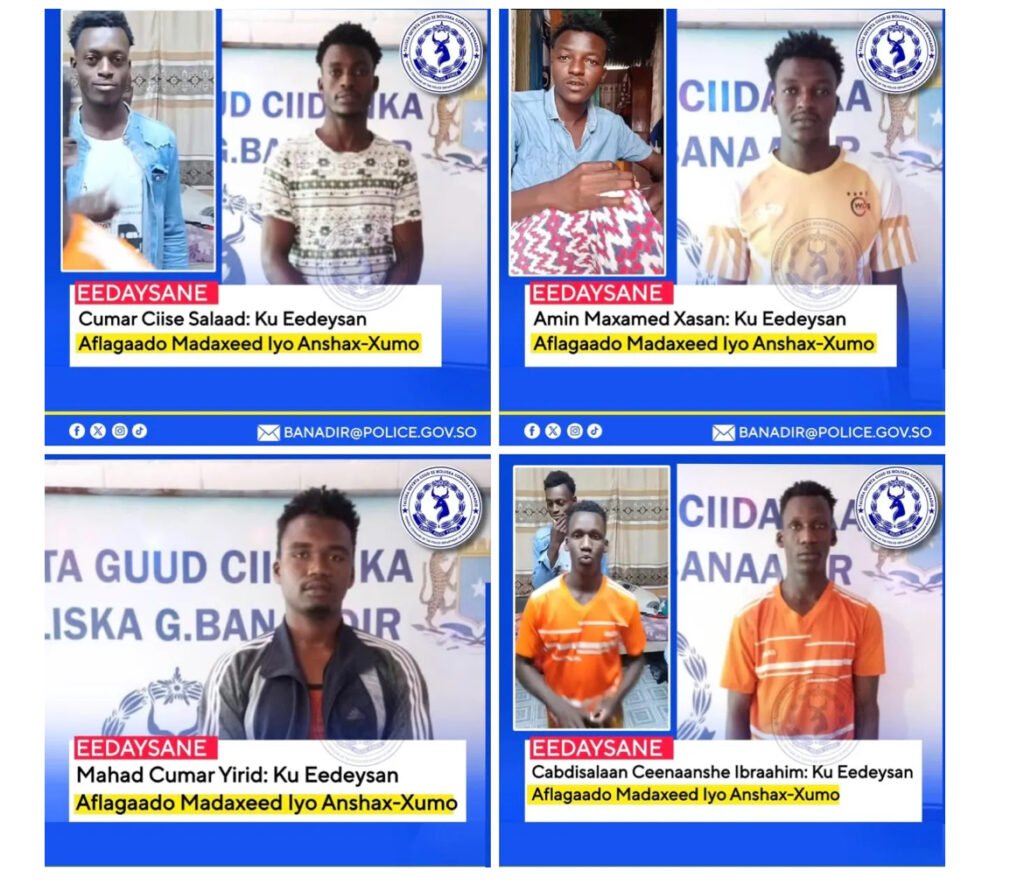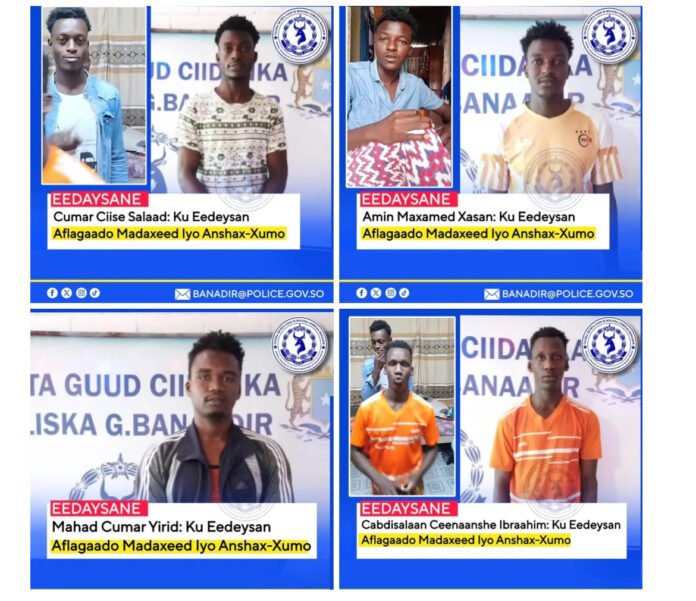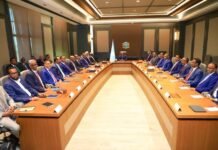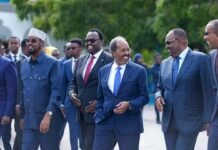MOGADISHU, (HAN) – The Somali Police Force announced the arrest of four young men accused of insulting President Hassan Sheikh Mohamud in videos posted on TikTok, in a case that has sparked renewed debate over the limits of free speech and the role of social media in Somalia’s fragile democracy.

The arrests, carried out by officers from the Garasbaaleey district police station, targeted four individuals identified as Omar Isse Salad, Mahad Omar Yirid, Amin Mohamed Hassan, and Abdisalan Eenanshe Ibrahim. According to police, the suspects circulated TikTok clips that directly mocked and disrespected the President.
In an official statement, authorities said the videos “undermine the dignity of the Head of State and contravene both the Constitution and national laws.” The suspects remain in custody and are expected to be presented before a competent court in the coming days.
Over the past few years, TikTok, Facebook, and other platforms have become increasingly popular among Somali youth, providing both a creative outlet and a space for political commentary. However, the lack of clear regulations governing online expression has often placed citizens in conflict with authorities.
While Somali officials argue that defamation and personal attacks against leaders threaten national unity and respect for institutions, activists counter that the state is using defamation laws as a tool to silence dissent.
The arrests come at a politically sensitive time, as the Somali government faces mounting security challenges from Al-Shabaab, persistent clan-based tensions, and public criticism over governance and corruption. President Hassan Sheikh Mohamud, re-elected in 2022, has positioned himself as a reformist leader. Still, criticism—both online and offline—remains widespread, particularly among unemployed youth and opposition figures.
Analysts say the latest arrests highlight the growing tension between government efforts to protect national leaders’ dignity and citizens’ calls for greater freedom of expression. “Social media is giving Somalis a platform to hold leaders accountable, but the government seems more concerned with protecting its image than addressing public grievances,” a Mogadishu-based civil society activist told HAN, requesting anonymity for security reasons.
Somalia’s Provisional Constitution guarantees freedom of expression, but rights groups have repeatedly raised concerns about arrests of journalists, activists, and ordinary citizens accused of defaming government officials. Organizations such as Amnesty International and Human Rights Watch have previously urged Somali authorities to reform defamation laws to prevent abuse.
Critics argue that criminalizing online insults is counterproductive in a country where young people often see social media as their only outlet for free expression. “Instead of arrests, the government should engage with the youth, address unemployment, and strengthen trust in institutions,” said a Somali political analyst based in Nairobi.
As the four suspects await trial, the case has reignited public debate on the fine line between protecting leaders’ reputations and respecting citizens’ right to criticize those in power. For now, Somali authorities are signaling zero tolerance for online insults against state institutions.
But with TikTok and other platforms continuing to grow in influence, the government may face mounting pressure to balance its legal actions with a commitment to democratic freedoms.





